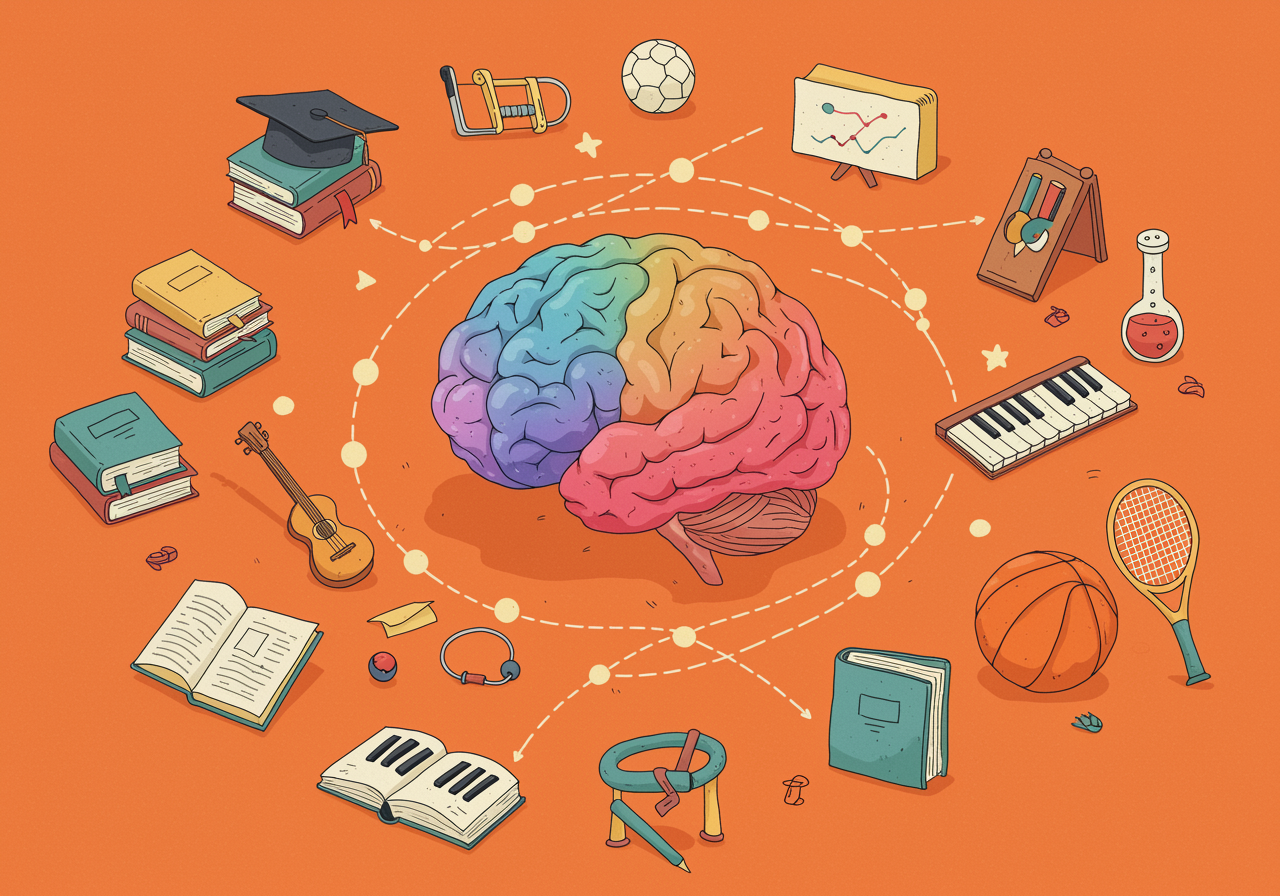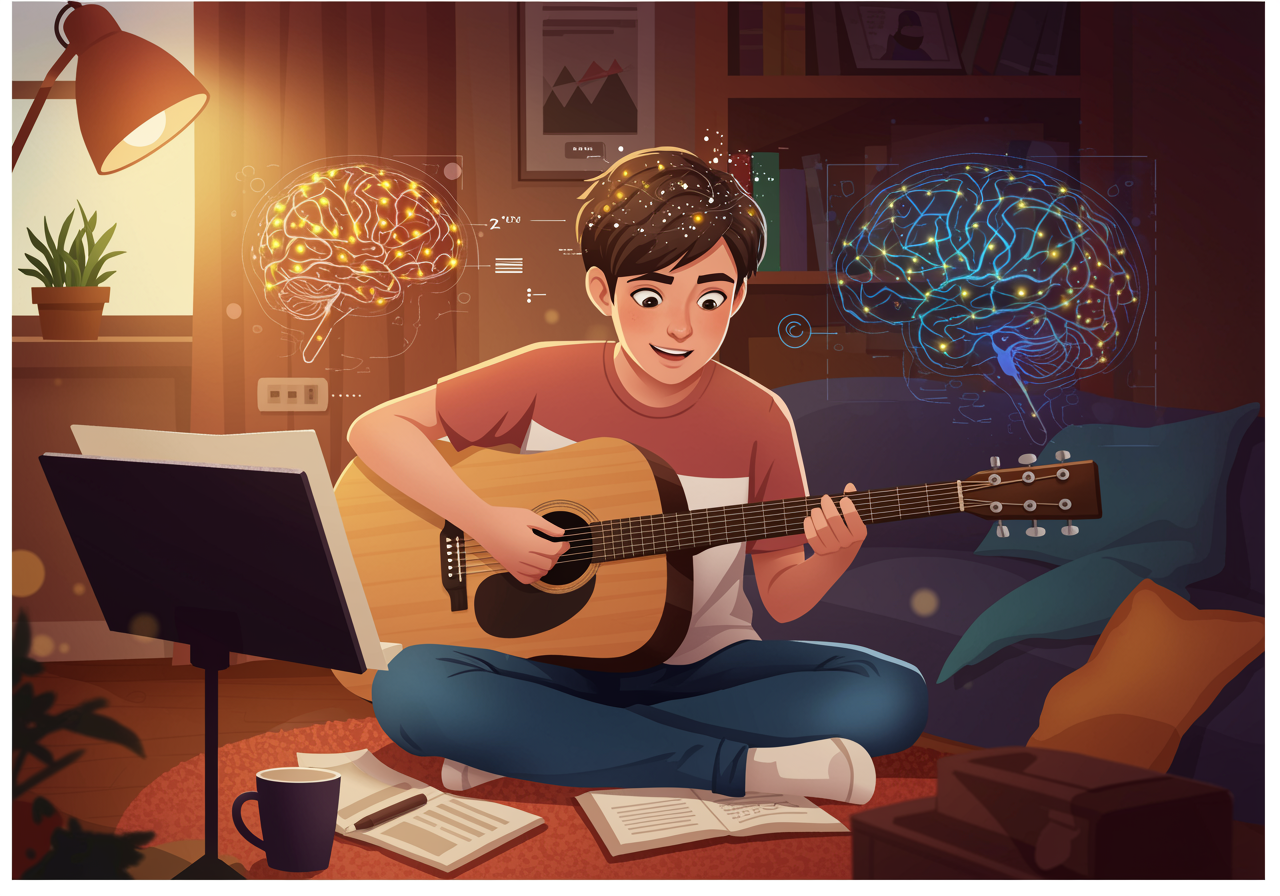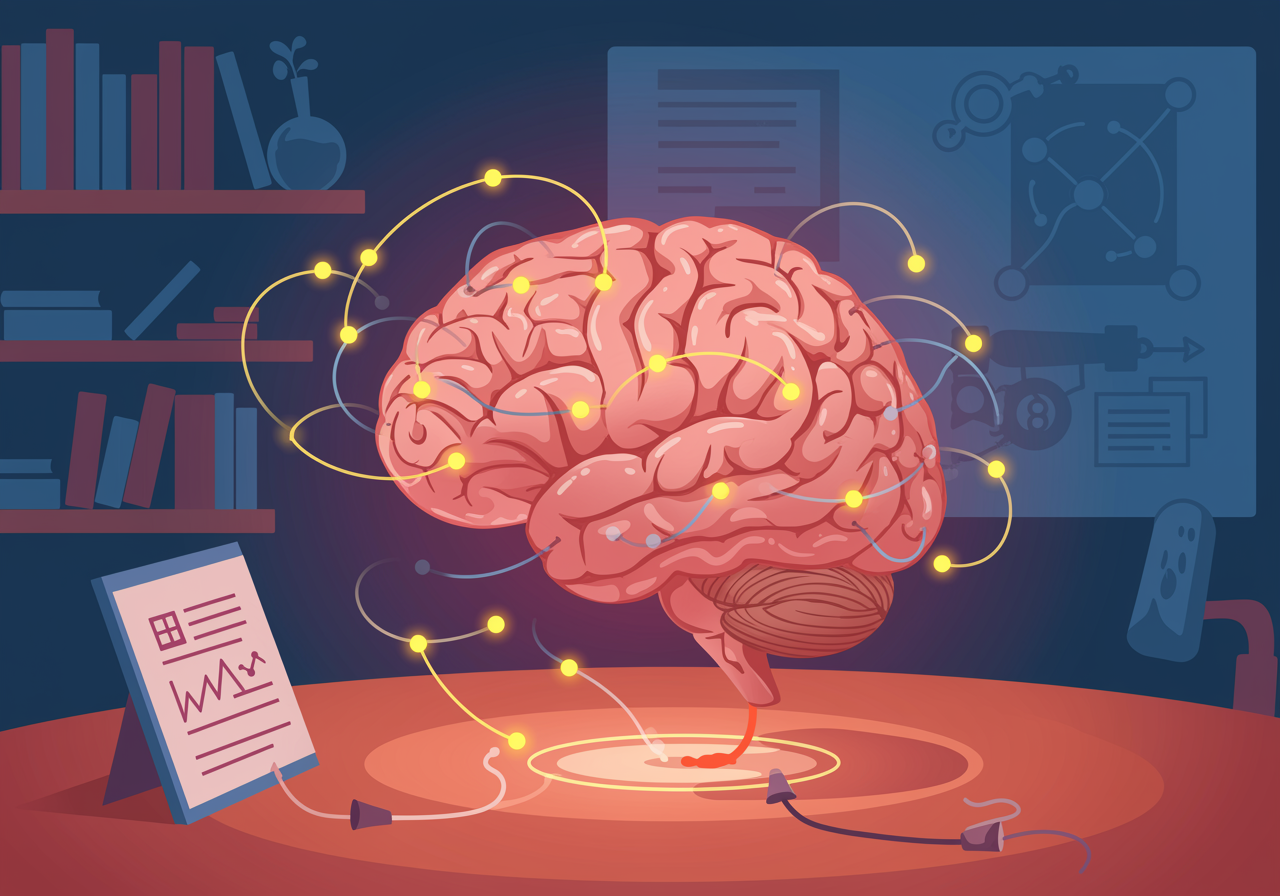Your Brain is Building Superpowers Every Time You Learn!

Discover how your amazing brain rewires itself and why that’s your secret weapon for the future
Dive into the incredible world of how your brain physically changes every time you learn something new and why this superpower matters more than ever.
Overview
Think about this: every time your teen masters a new video game level, learns a TikTok dance, or figures out a math problem, their brain is literally rewiring itself! This isn't just feel-good talk – it's real science called neuroplasticity. Understanding how learning physically changes our brains helps kids realize they're not stuck with the abilities they have today. In a world where jobs and skills are constantly evolving, this brain superpower of adaptation and growth is their greatest asset for future success.

Understand in 30 Seconds
Get up to speed quickly
- Your Brain Builds New Roads: Every time you learn something, your brain creates new connections called neural pathways, like building highways between brain cells.
- Practice Makes Permanent: The more you use these brain pathways, the stronger and faster they become – just like a muscle getting stronger with exercise.
- Learning Never Stops: Your brain can keep building new connections your whole life, meaning you can always get better at anything with practice.
- Future-Proof Superpower: This brain flexibility helps you adapt to new technology, jobs, and challenges that don't even exist yet.
Real Life Scenario
Situations you can relate to
Imagine your brain is like the ultimate city planner. When you first try to learn guitar, there's no road connecting your 'hearing music' neighborhood to your 'moving fingers' district. Your brain has to build a tiny dirt path between them. At first, it's bumpy and slow – your fingers fumble and the music sounds rough. But here's the magic: every time you practice, your brain says 'Hey, we use this route a lot!' and upgrades that dirt path. First to a small road, then a bigger street, and eventually to a superhighway. Soon, your fingers fly across the strings without you even thinking about it. What's even cooler? Your brain doesn't just build one road – it creates an entire network, connecting rhythm, melody, and muscle memory. This same process happens whether you're learning Spanish, coding, skateboarding, or solving complex problems!

Role Play
Spark a conversation with “what if” scenarios
What if your brain cells could talk while you're learning to drive?
- Role play: Take turns being different brain cells trying to coordinate steering, checking mirrors, and using the gas pedal. Act out the chaos of first attempts versus the smooth teamwork after practice.
What if you could see the neural pathways forming as someone learns a new language?
- Role play: Use string or yarn to physically connect different 'brain regions' (family members) as you practice vocabulary, showing how connections get stronger and faster.
What if your brain was a construction site building new skills?
- Role play: Act out being brain construction workers building 'skill highways' – start with small tools for simple paths, then bring in bigger equipment as the skill develops.
FAQs
Frequently asked questions people want to know
Does this mean anyone can become a genius at anything?
While everyone has different starting points and natural strengths, the brain's ability to grow means you can always improve significantly with focused practice and patience.
Why do some things feel harder to learn as we get older?
Young brains are extra flexible, but adults can still learn effectively – it just might take more focused effort and different strategies.
If my brain builds new pathways, why do I sometimes forget things I learned?
Brain pathways need regular use to stay strong. If you don't practice something for a long time, those pathways can weaken, but they can be rebuilt faster than the first time.
Examples in the Wild
See how this works day to day
- London taxi drivers have larger brain regions for navigation because they memorize thousands of streets, physically changing their brain structure (University College London research)
- Professional musicians show increased brain connectivity between motor and auditory regions from years of practice (Harvard Medical School studies)
- People who learn a second language as teens show enhanced problem-solving abilities and greater cognitive flexibility later in life (American Psychological Association research)
- Video game players develop improved attention, spatial skills, and decision-making abilities through neural pathway strengthening (Nature journal studies)
In Summary
What you should know before you start
- Learning physically rewires your brain by creating and strengthening neural pathways
- This brain flexibility (neuroplasticity) continues throughout your entire life
- The more you practice something, the faster and more automatic it becomes
- This adaptability is your secret weapon for thriving in an ever-changing future
Pro-tip for Parents
You got this!
When your teen struggles with something new, resist the urge to say 'you're just not good at math/sports/art.' Instead, try 'your brain hasn't built those pathways yet.' This simple shift from fixed mindset to growth mindset can transform how they approach challenges. Celebrate the learning process, not just the results – 'I can see your brain working hard to build those new connections!'

Keep an Eye Out For
Find these examples in everyday life
- News about AI and automation changing jobs – perfect time to discuss how brain adaptability helps humans stay relevant
- Stories about people learning new skills later in life, like grandparents mastering technology
- Research about learning techniques, memory, and brain training that pops up in science news
Explore Beyond
Look up these related research topics
- How sleep and exercise affect learning and brain health
- The science of motivation and what makes learning stick
- How emotions and stress impact our ability to learn new things